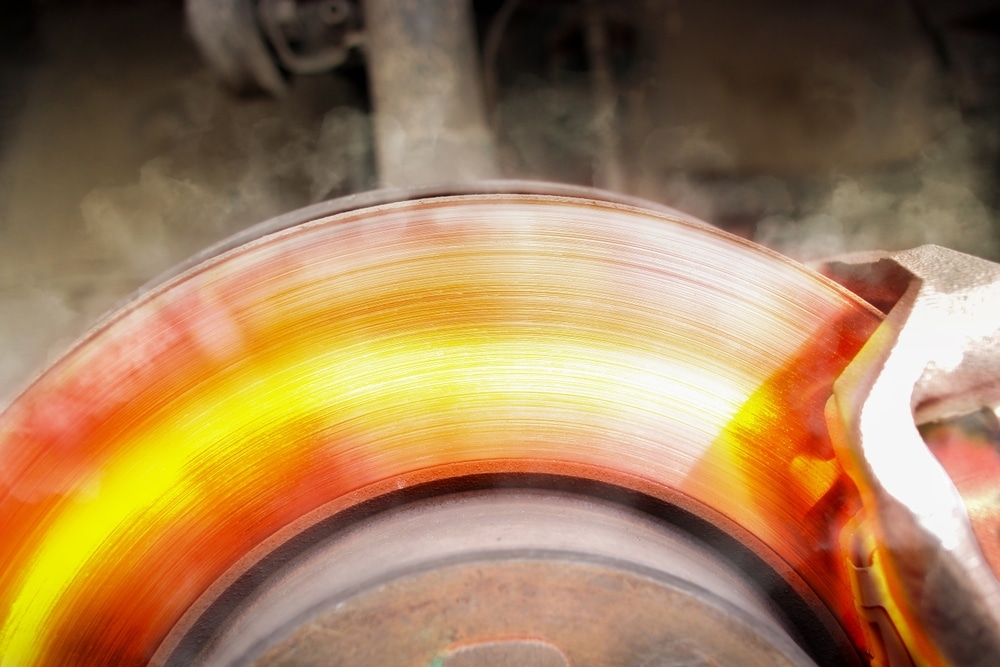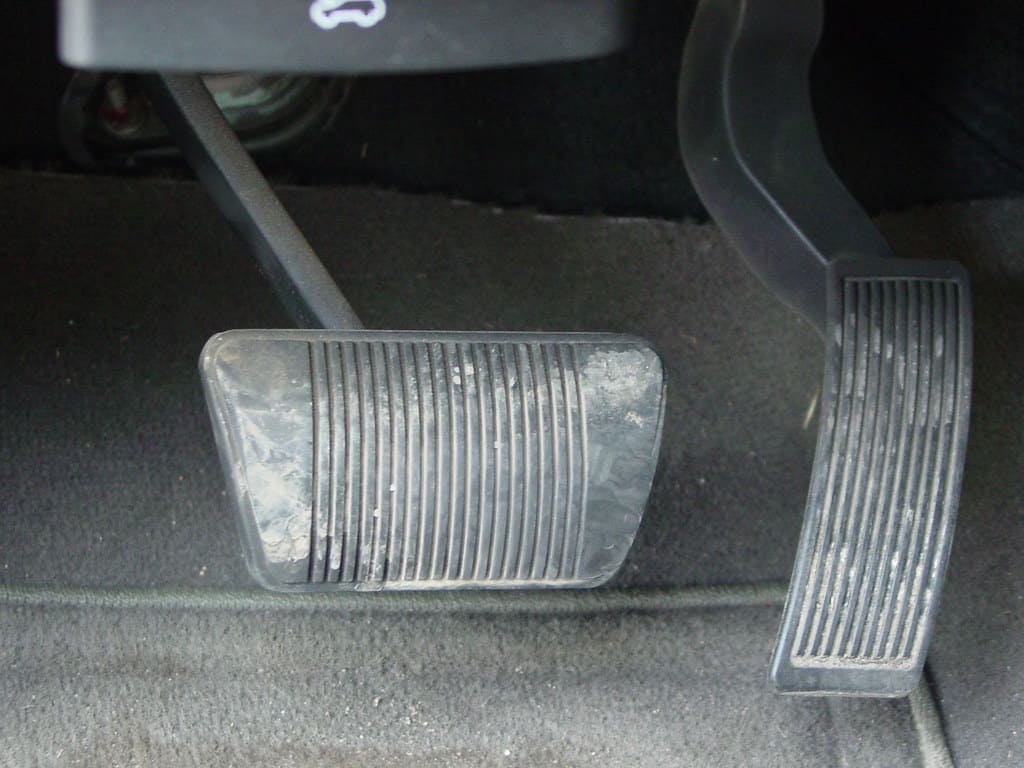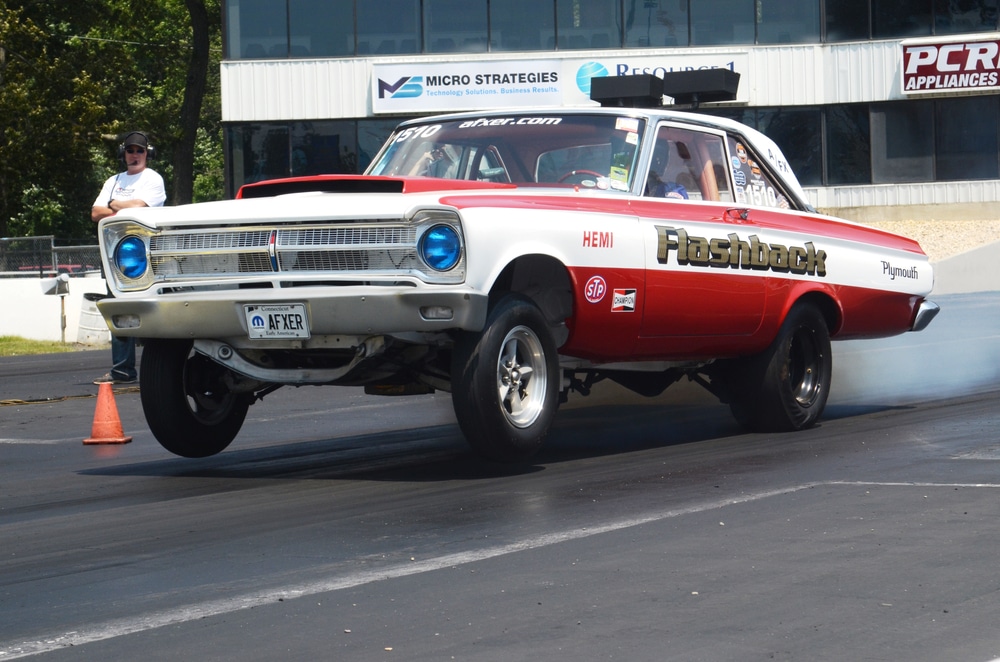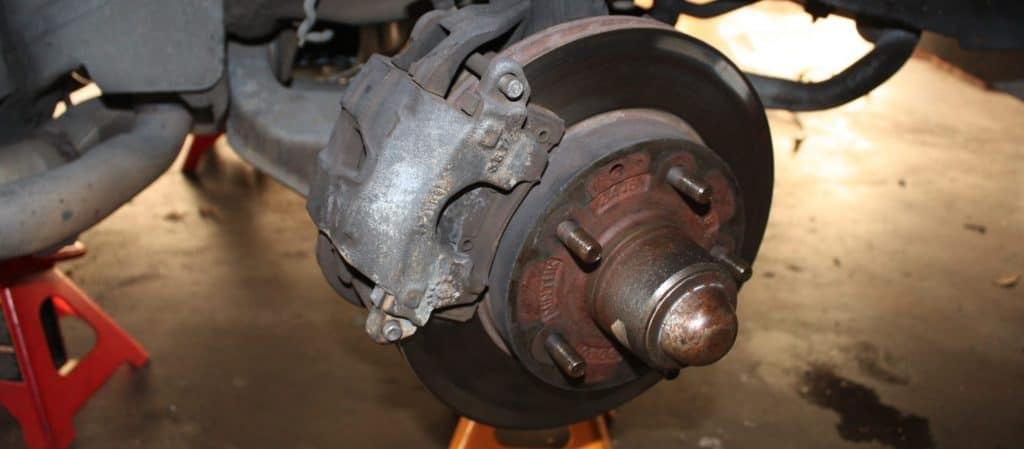You’ve just installed new brake pads and rotors, expecting a smooth, quiet ride. But as you pull out of the driveway, you hear that dreaded squeak.

Don’t panic! New brakes often produce squeaking sounds due to factors like moisture, protective coatings, or improperly bedded pads.
This noise is usually temporary and should disappear after a few hundred miles of driving.
Weather and moisture can cause a thin layer of rust on the rotor surface, leading to that annoying squeal.
Your new brake pads might also be coated with a protective layer that needs to wear off.
Sometimes, the culprit could be improper installation or low-quality brake components.
If the squeaking persists beyond the break-in period, it might be time to have a professional take a look.
Remember, your safety is paramount, so don’t ignore persistent brake noises.
Key Takeaways
- New brake squeaks are often temporary and resolve after a break-in period
- Moisture, protective coatings, and installation issues can cause initial squeaking
- Persistent squealing may indicate a need for professional inspection
Understanding Brake Systems and Components
Brakes are the unsung heroes of your car, quietly keeping you safe every time you hit that pedal.
Let’s take a peek under the hood (or should we say, under the wheel) at these life-saving components.
Role of Brake Pads and Rotors
Brake pads and rotors are like dance partners – they need perfect harmony to work their magic.
When you press the brake pedal, the pads squeeze against the rotors, creating friction that slows your car down. It’s like giving your wheels a big bear hug!
Brake pads are the workhorses, wearing down over time to keep you safe. They’re made of sturdy stuff, usually semi-metallic or ceramic materials.
Your rotors, on the other hand, are the smooth operators – flat, shiny discs that spin with your wheels.
When these two are in tip-top shape, your car stops on a dime. But when they’re worn out? Well, that’s when the squeaking starts. It’s their way of saying, “Hey buddy, we need a little TLC down here!”
Types of Brakes: Drum vs. Disc
Now, let’s talk about the two main types of brakes: drum and disc. It’s like choosing between vinyl records and CDs – both do the job, but in slightly different ways.
Disc brakes are the cool kids on the block. They’re what you’ll find on most modern cars.
They work like a bicycle brake, with the pads clamping onto a rotor. They’re great at dissipating heat, which means they can stop you faster without breaking a sweat.
Drum brakes, on the other hand, are the old-school option. They’re like a tiny hug factory inside your wheel.
When you hit the brakes, shoes press against the inside of a drum, slowing you down. They’re cheaper and simpler, but they don’t handle heat as well as their disc cousins.
Most cars these days use disc brakes up front and drums in the back. It’s like having the best of both worlds – the stopping power where you need it most, and the simplicity where you don’t.
Common Causes of Brake Squeal After Replacement

You’ve just replaced your brake pads and rotors, but that annoying squeal is still there. Don’t worry, it’s not uncommon.
Let’s take a look at why your shiny new brakes might be singing you the song of their people.
Break-In Period for New Brake Pads
Ever worn new shoes? They need some breaking in, right? Well, your new brake pads are no different.
They’re like eager puppies, ready to work but not quite house-trained yet.
During the first few hundred miles, your brake pads are getting cozy with your rotors. This process is called “bedding in.”
It’s like a first date between your pads and rotors – a bit awkward at first, but they’ll smooth things out.
You might hear some squealing during this time. It’s just your brakes saying “Hey, we’re new here!” Give them some time to settle in. Usually, the noise will disappear on its own once the pads have worn in a bit.
Effects of Moisture and Rust
Ever noticed how your brakes sound extra squeaky on a rainy day? That’s because moisture and brakes go together like oil and water – they don’t.
When your car sits overnight, a thin layer of rust can form on the rotors. It’s like your rotors grew a scratchy beard while you were sleeping.
The next morning, your brake pads have to shave it off, causing that lovely wake-up squeal.
This rust formation is normal and usually goes away after a few stops. But if you live in a particularly damp climate, you might hear it more often.
Just think of it as your car’s way of saying “Good morning!”
Inadequate Lubrication of Brake Components

Your brakes need lubrication like a comedian needs an audience. Without it, things can get pretty awkward.
When replacing brake pads, it’s crucial to apply the right lubricant to certain parts.
The backs of the pads, the caliper slides, and other metal-to-metal contact points all need a dab of the good stuff.
If these areas aren’t properly lubricated, you might hear a squeal that sounds like your car is trying out for the local opera.
Proper lubrication helps your brake components move smoothly and quietly.
Debris Caught Between Pads and Rotors
Sometimes, your brakes might pick up an unwanted passenger.
Small pieces of debris can get stuck between the pads and rotors, causing a squealing sound that’ll make your ears wish they could run away.
This debris could be anything from small stones to brake dust. It’s like your brakes decided to go to the beach and brought back some sand.
Except instead of a fun souvenir, you get an annoying squeal.
If you suspect this is the case, you might need to remove the wheels and clean the brake components.
It’s like giving your brakes a spa day – they’ll come out refreshed and hopefully a lot quieter.
Materials and Quality of Brake Pads

The type of brake pad material you choose can make a big difference in how your brakes perform and sound.
Let’s take a closer look at the main options and how they stack up.
Ceramic vs. Semi-Metallic vs. Organic
Ceramic brake pads are like the fancy cheese of the brake world. They’re quiet, clean, and long-lasting. You’ll pay more upfront, but they’ll treat your rotors nicely.
Semi-metallic pads are the workhorses. They’re made with metal fibers that can handle high heat. Great for heavy-duty use, but they might make your wallet and ears complain a bit.
Organic pads are the softies. Made from natural fibers, they’re gentle on rotors and easy on the wallet. But they wear out faster than a cheap pair of shoes.
How Pad Material Affects Performance
Ceramic pads give you smooth, quiet stops. They’re perfect if you want your ride to purr like a kitten. But they might not bite as hard in extreme conditions.
Semi-metallic pads are the noisy neighbors of the bunch. They’ll squeak more often, but boy do they stop on a dime. Great for heavy vehicles or if you fancy yourself a racecar driver.
Organic pads are like butter on a hot pan – they work great until things get too hot. Perfect for your daily commute, but not so much for hauling or mountain driving.
Best Practices for Brake Maintenance
Keeping your brakes in tip-top shape is crucial for your safety and your wallet. A little TLC goes a long way in preventing those annoying squeaks and costly repairs down the road.
Regular Inspection and Cleaning
You know that satisfying squeak-free stop? That’s the sound of well-maintained brakes.
Get in the habit of giving your brakes a once-over every few months. Look for wear on the pads and rotors – if they’re thinner than a nickel, it’s time for a change.
Don’t be shy with the brake cleaner.
Spray it on liberally to wash away brake dust and grime. It’s like a spa day for your brakes, and they’ll thank you with smooth, quiet stops.
Listen to your brakes. If they start singing you the song of their people (aka squealing), don’t ignore it.
It’s their way of saying, “Hey buddy, we need some attention!”
When to Seek Professional Brake Service
Sometimes, your brakes need more love than you can give.
If you hear grinding, feel vibrations, or your brake pedal feels spongy, it’s time to call in the pros.
Fixing squeaky brakes isn’t always a DIY job.
If you’ve tried cleaning and lubricating but the squeaks persist, wave the white flag and head to a mechanic.
Remember, brake service isn’t just about fixing problems – it’s about preventing them.
Schedule a professional check-up at least once a year. They’ll catch issues you might miss and keep your stops smooth and silent.
Troubleshooting Squeaks: DIY Fixes
Got squeaky brakes after installing new pads and rotors? Don’t worry, you’re not alone.
Let’s roll up our sleeves and tackle those annoying noises with some handy DIY fixes.
Lubricating Moving Parts
First things first, grab that brake lubricant. It’s your best friend in this squeaky situation.
Apply a thin layer to the back of the brake pads where they contact the caliper pistons. Don’t go overboard – you’re not greasing a pig at the county fair!
Next, give some love to the caliper slides. These little guys need to move freely, so clean ’em up and apply a dab of silicone-based lubricant.
Remember, less is more. You don’t want that stuff getting on your rotors or pads.
Lastly, hit those spots where metal touches metal. A little lube goes a long way in keeping things quiet.
Just be careful not to get any on the friction surface of your pads or rotors. That’d be like putting oil on your shoes before a marathon – not a great idea!
Proper Installation of Pad Clips and Slide Pins
Now, let’s talk about those pesky pad clips. They’re not just there for decoration, folks! Make sure they’re installed correctly and seated properly.
If they’re loose or wonky, your pads might dance around like they’re at a disco, causing all sorts of racket.
Check your slide pins too. These bad boys need to be clean, lubricated, and moving freely.
If they’re sticking, your brake pads won’t release properly, and you’ll be serenading the neighborhood with every stop.
Here’s a quick checklist for you:
- Pad clips snug and properly seated
- Slide pins clean and lubricated
- No debris or rust on mounting surfaces
- All bolts tightened to spec (don’t go Hulk on ’em!)
Cleaning Strategies for Eliminating Noise
Time to get your hands dirty! Dust and debris are the arch-nemeses of quiet brakes.
Start by giving your brake assembly a good once-over with brake cleaner. It’s like a spa day for your brakes, minus the cucumber slices.
Pay special attention to the rotor surface. Any built-up rust or debris can cause your pads to squeal like a pig at feeding time. A light sanding with fine-grit sandpaper can help smooth things out.
Don’t forget about those contact points between the pads and caliper. A little cleaning here can work wonders.
And while you’re at it, give the wheel hub a good scrub too. Sometimes, dirt sneaks in there and crashes the quiet brake party.
Remember, cleanliness is next to brakiness. Or something like that. Just keep everything spick and span, and your brakes will thank you by shutting up.
Frequently Asked Questions
New brakes can be noisy for various reasons. Let’s address some common questions about squeaky brakes after installation.
Why might new brakes emit a squeaking sound even when coming to a slow stop?
Even at slow speeds, new brakes might squeak due to moisture on the brake pad or rotor surface. That thin layer of rust from rain or humidity can cause quite a racket.
Think of it as your brakes getting stage fright. They’re new to the show and a bit nervous!
Is it typical for recently replaced brake pads to continue squeaking after several weeks?
It’s not unusual for your new brake pads to be a bit chatty for a while. They’re like excited puppies – they need time to settle down.
The protective coating on new pads and rotors needs to wear off. This can take a few weeks of normal driving.
What’s the average break-in period for new brakes, during which some squeaking might occur?
The break-in period for new brakes is typically around 300-400 miles. It’s like breaking in a new pair of shoes – they might pinch a bit at first.
During this time, your brakes are getting to know each other. They’re on a first date, if you will, and might be a bit awkward.
Can you explain why my newly installed brakes are still making noise three months down the road?
If your brakes are still singing the blues after three months, something’s not right. It could be poor installation or misalignment.
Your brakes shouldn’t still be in their awkward teenage phase at this point. Time to let a pro take a look.
What steps can one take to ensure new brake pads and rotors remain silent during driving?
To keep your brakes quiet, make sure they’re installed correctly. It’s like making sure your socks match – small details matter.
Avoid hard braking for the first few hundred miles. Treat your new brakes gently, like you would a delicate soufflé.
Does backing up affect newly installed brakes and cause them to squeak, and if so, why?
Backing up can indeed cause new brakes to squeak.
It’s like trying to moonwalk – going backwards feels a bit unnatural at first.
The change in direction can cause the brake pads to shift slightly, resulting in that annoying squeak.
Give them time to get used to the dance.
